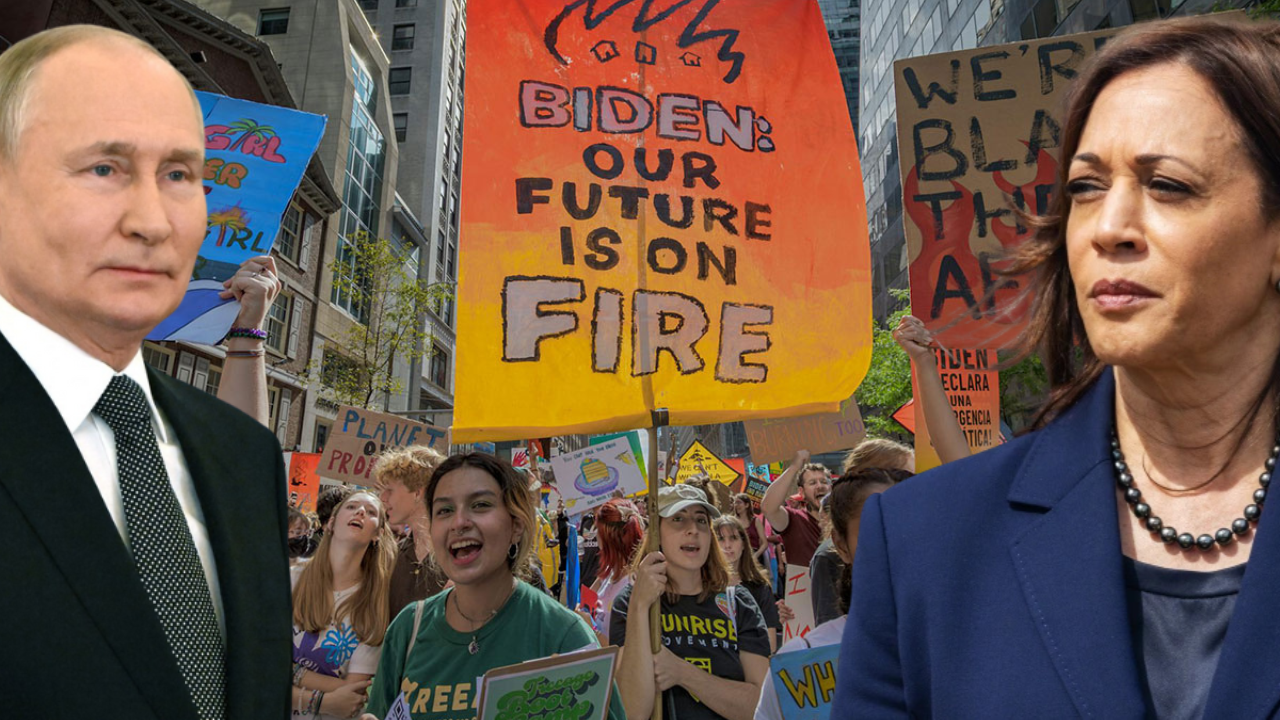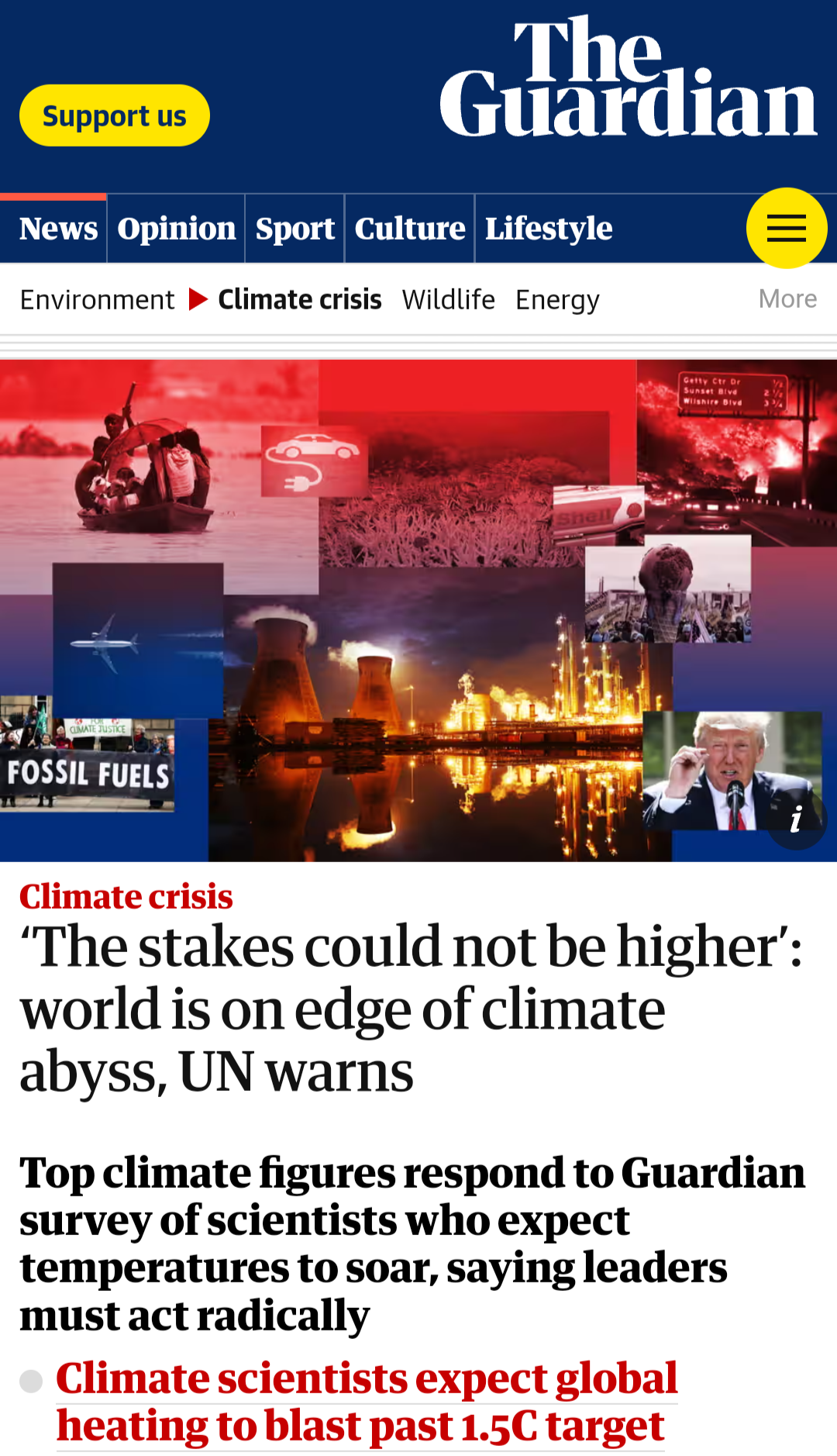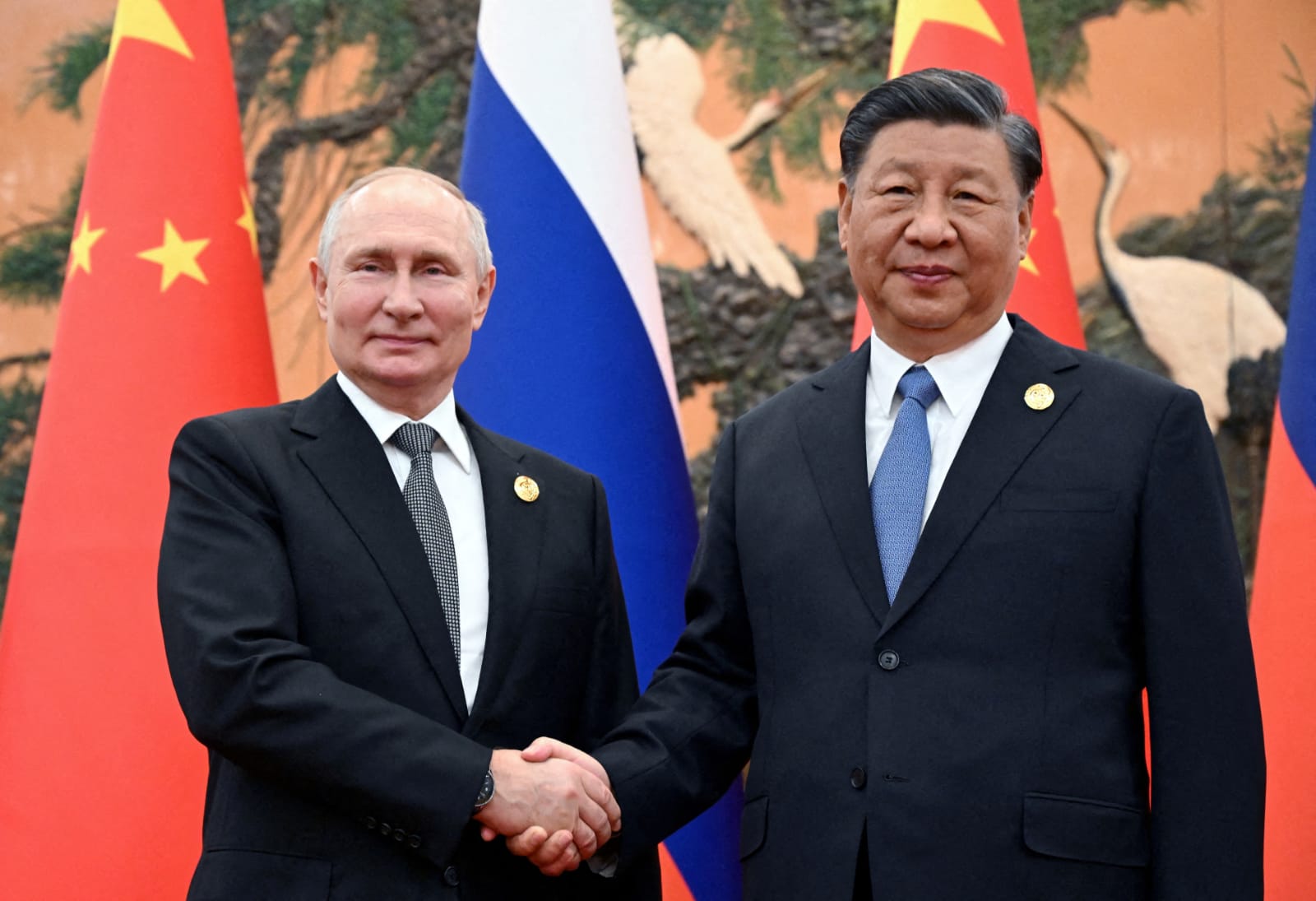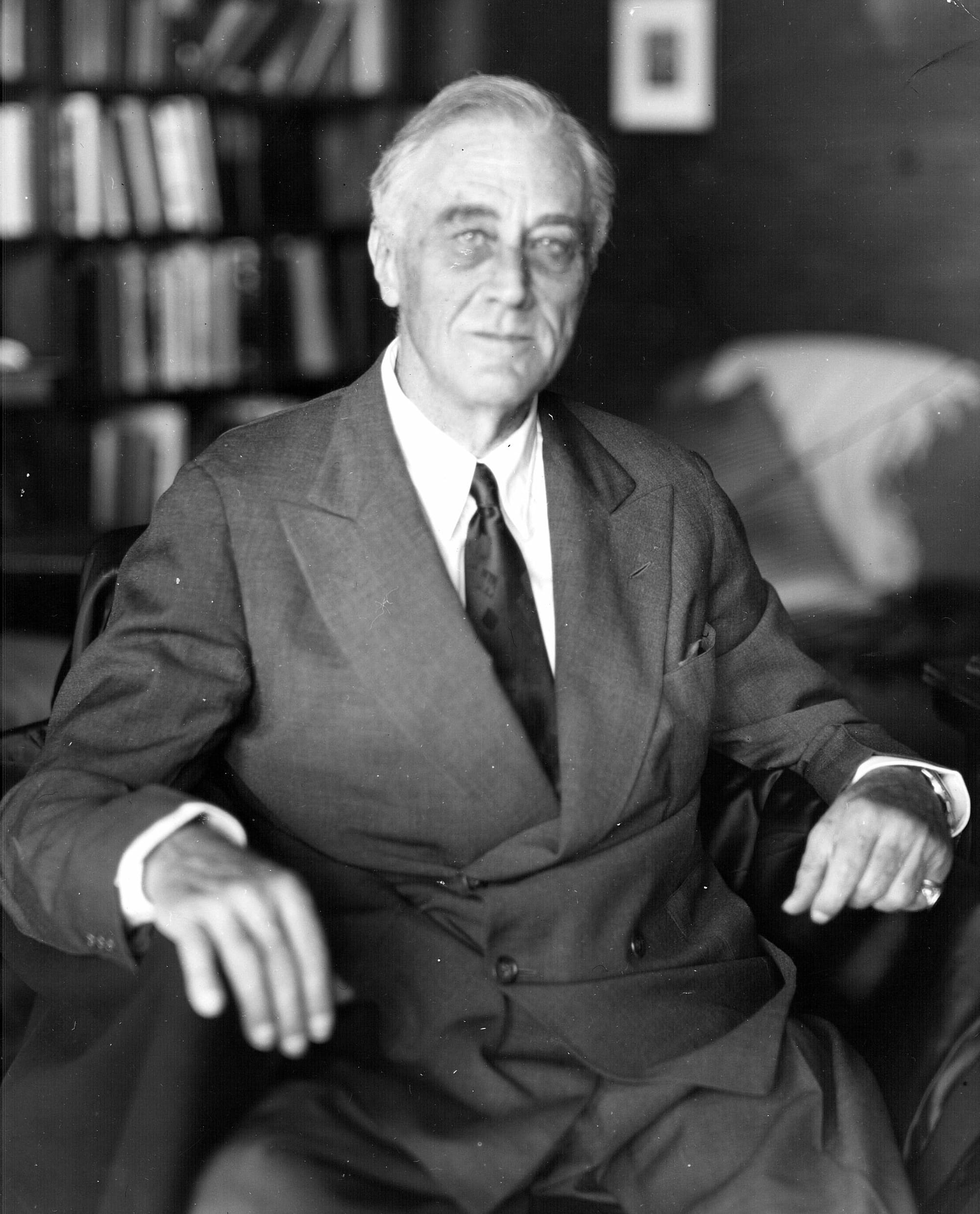While the media sleeps: what's at stake in the 2024 election.
The climate crisis, Putin, China, and the potential successor of a very old President are all on the table in 2024. But who wants to talk about that?

Yesterday a friend of mine – a reader of this blog, in point of fact – and I got into a discussion about media and how it's covering various things, including the Israel-Gaza conflict and the upcoming 2024 election. As we finish the first third of May, we're a little less than six months from the political contest that, given the state of the country and the world, future historians may look back at as a particular watershed in the story of this era. I alluded to this a bit in my last current-events related article, about Vladimir Putin and his endgame – if he has one – in his attempted conquest of Ukraine. Almost uniformly, the media, at least the vast majority of the legacy media, is failing almost across the board in foregrounding the main issues that this election is going to decide. They are, as they always have, treating it as the same milquetoast red vs. blue horse race that they've always preferred to report on. In doing so, the media has utterly failed us. The New York Times, Washington Post, CNN, MSNBC, all the usual players in the game of public discourse are useless, worse than useless, in 2024. That's not surprising to me, but that doesn't make it any less appalling.
The most important issue at stake in this election, by a wide margin, is the climate crisis. Already the year 2024 has given us record-breaking temperatures, rainfalls and extreme weather events. Brazil last week saw the worst flooding in 80 years from climate-supercharged storms. As summer in the Northern Hemisphere has yet to begin, we've barely seen what's in store this year. Climate scientists and meteorologists have been sounding the alarm for years – but, as usual, few in the media are listening. The next five years, which coincide with the next U.S. Presidential term (and probably the term of whatever government in the UK is elected at the end of 2024 or early 2025), will see the Earth's ravaged climate pass a number of tipping points that mean severe chaos and disruption, bringing food insecurity, refugee crises and economic disruptions. Whoever is elected U.S. President in 2024 is going to have to deal with the effects of these problems, and it doesn't matter whether that person "believes in climate change" or not, though obviously it would be better to have someone who understands what's happening rather than someone who denies its proven cause.
For the most part, the media could be generating discussion on this issue. It isn't. The notable exception is the newspaper The Guardian in the UK, which regularly features climate-related news. That's a model to follow, but no one, certainly no legacy media outlets in the U.S., seem interested even in covering the single most important issue in the 2024 elections. That alone is grounds to dismiss at least the American journalistic establishment as having utterly failed the public. Where is the urgency? The New York Times should be regularly running six- or eight-column headlines on climate news multiple times a week – the issue is that urgent. The Times isn't doing that. Failure is the only word apposite to describe it.

While the media has been at least cognizant that the Israel-Hamas conflict exists and is significant, little journalistic attention, and thus little public attention, is being placed in a forward-looking direction, which is where it should be when we're about to elect leaders who will have to deal with the results of it. The war in Gaza will probably still be going on in November 2024. If Hamas and the Palestinian people are utterly destroyed by Israel's brutal right-wing government, or whether some other country (most likely Iran) intervenes to try to prevent that, the war may well completely upend the balance of power in the Middle East. Even in a best case scenario, where the conflict ends quickly and there's some sort of move toward a brokered peace, it's a slam-dunk that the U.S. President will have to be involved in that negotiation or will have to react to it. I haven't heard anyone talking about that issue in the press. Right now the media seems most interested in the question of whether protests of Israel's policy on American college campuses are antisemitic or not. This disingenuous reporting is why student leaders of those protests are refusing, quite rightly, to talk to journalists about them. Again: total media failure.
There are other aspects of the international situation that will turn on the 2024 U.S. election. I already made the case that Putin is waiting to see if a Trump victory will help him conquer Ukraine. As Trump will dismantle NATO as one of his first acts, thus removing the only significant remaining counterbalance in Europe to Russia's aggression, Putin will have a green light to move against his next targets, probably starting with Moldova and eventually – if he lives that long – the Baltic states of Estonia, Latvia and Lithuania. A Republican victory in 2024 means the U.S. will essentially exit the stage of European defense. War in Europe is way past the "likely" stage – it's going on right now, and will escalate. As a historian, I can tell you that large-scale military conflict in Europe is rather a big deal. Once again the U.S. news media is asleep on this issue.
It's not just Putin and Russia, either. There were recently (January 2024) Presidential elections in Taiwan, the first to follow PRC leader Xi Jinping's securing of a third term as General Secretary of the Chinese Communist Party. Mainland China has been steadily increasing its economic and military power, and it's possible that a Chinese attempt to take over Taiwan, long thought to be a red line that they'd never cross (due to the U.S.'s security commitments to Taiwan), may be a real possibility in the next four years. Which candidate wins in the U.S. in 2024 has a lot to do with how strong that possibility is. An America that is withdrawing from the world, and cowed by Putin in Europe, is likelier to be similarly cowed by Xi Jinping in Asia. Of course the foundational question – is the defense of Taiwan from the PRC worth what it would take in U.S. blood and treasure to defend it, if seriously challenged – is an issue light-years beyond the current capacity of the legacy media to tackle in any serious way. Whoever sits in the White House between 2025 and 2029 may have to resolve that question. Who do we trust to do it? No one's talking about that, and they should be.

There's also the issue of potential successors. Both U.S. major party candidates, the Democrat and the Republican, are so old – a symptom of the shocking failure of both parties to plan for the inevitable generational shift that's looming – that chances are higher than in any previous election that whoever wins in November, Biden or Trump, will not live to see the end of his term in 2029. Trump hasn't yet chosen his running mate, but it will be undoubtedly be a soulless right-wing sycophant with little to no understanding of how the world works, someone such as Marjorie Taylor Greene. Thus voters in 2024 are selecting not just the wizened old man who will take the oath of office on January 20, 2025, but also the person who would succeed him if (when?) he dies.
Is Kamala Harris any good at global military strategy? She might have to become so, unexpectedly and rapidly. What if Biden wins and Trump's disaffected supporters refuse to accept it and instigate widespread violence? What if that happened and Biden died before it was resolved? These what-ifs are not so far-fetched as they seem. It has been 61 years since a U.S. President died in office by violence, and 79 since one died of natural causes. Historically speaking, even if you account for the improvement during that time both in security and in the quality of health care that a U.S. President can expect to receive, we're overdue for such a black-swan event. Each Presidential term that ends with its occupant still breathing and in good health increases the chance that the next one won't end that way.

And what about that generational shift, which is as inevitable and inexorable as the coming sunrise tomorrow? The Baby Boom generation has made it clear that they will not surrender political, economic or cultural power as long as they're alive. I don't mean to be morbid, but given demographics, more Americans of the Baby Boom generation will die between 2025 and 2029 than in any other four-year period we've experienced up until now. Among the millions of Boomers who will exit the stage of history during the next Presidential term will be politicians, CEOs, opinion leaders, journalists, university professors and military commanders. Younger people are more incensed and resentful of their elders now that at any time since the Boomers were young in the 1960s and early '70s, resisting the "squares" in the same way that young people protesting climate inaction and the war in Gaza are doing now. That generational resentment will be even sharper in the second half of the 2020s. The media is not talking about this, either. A reckoning is coming.
The coming years, between now and the end of the decade, will be decisive ones in human history, in a way that previous similar half-decades have not been. But you wouldn't know it by browsing the headlines of legacy media. I have no prescription, much less a cure, for these problems, other than to look past the buzz that's popular in the headlines or on the internet and think more deeply about what's in store for us in the next four years. My profession is looking at the past, but one of the chief uses of that profession is informing what may happen in the future. As a society we seem uninterested in doing that. I wish I could change that, but I'm just one voice in the wilderness.
The Value Proposition
Why should you be reading this blog, or receiving it as a newsletter? This is why.
☕ If you appreciate what I do, buy me a virtual coffee from time-to-time to support my work. I know it seems small, but it truly helps.
📖 You could also buy my newest book.
🎓 Like learning? Find out what courses I’m currently offering at my website.
📽 More the visual type? Here is my YouTube channel with tons of free history videos.



Comments ()